Brexit could hit women's rights, says ex-UN expert
- Published
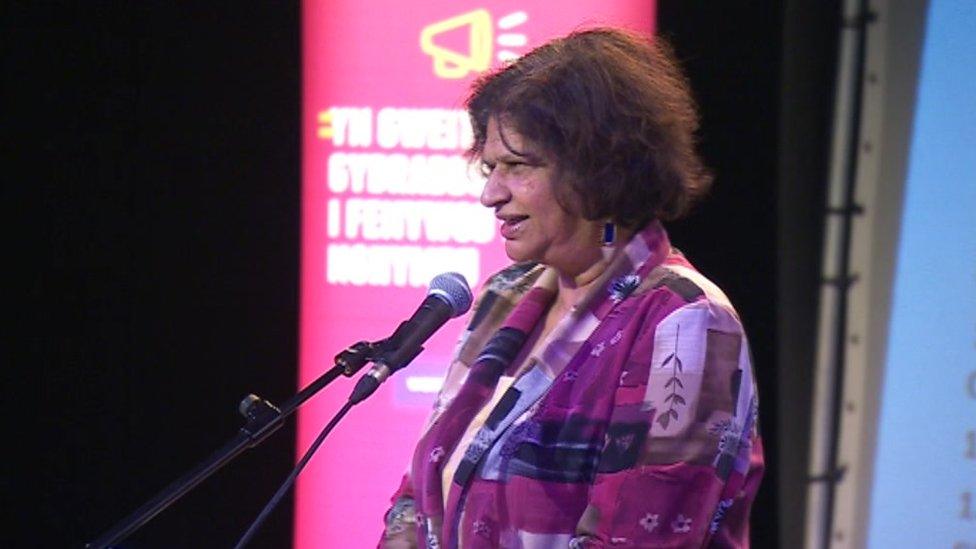
Virginia Bras Gomes said women were "always at the bottom of the ladder" when losing rights
Women's rights in Wales could take a significant step back after Brexit, according to an international expert.
Virginia Bras Gomes, the former chair of a UN committee on cultural rights, said women would be hard hit by losing the EU's framework for tackling discrimination.
She commended the Welsh Government for its commitment to feminism, but said that words needed action.
The Welsh Government said it had set itself a "challenging agenda".
The former chair of the UN's committee on economic, social and cultural rights was in Cardiff on Thursday at a conference examining women's rights and the situation after Brexit.
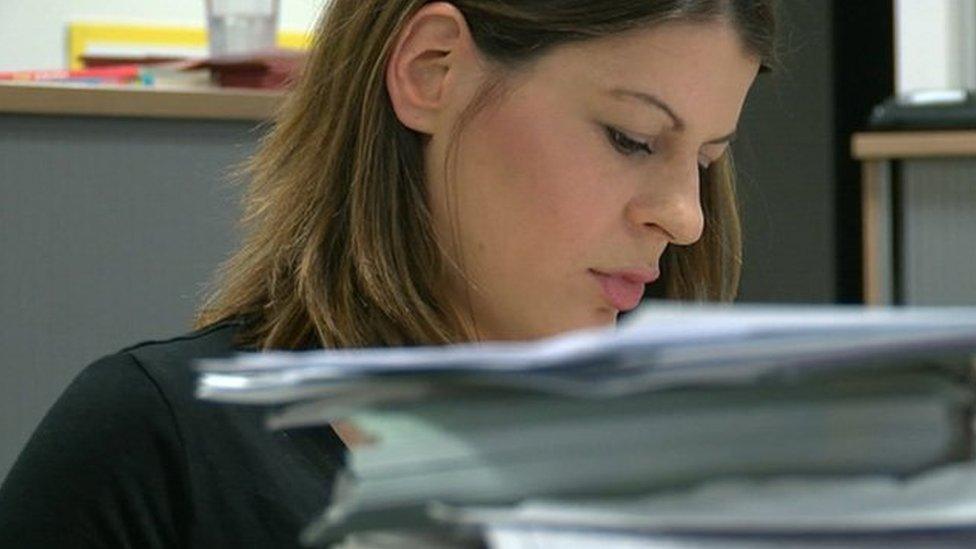
A review committed the Welsh Government to being a "feminist government"
Speaking to the BBC's Sunday Politics Wales programme, Ms Bras Gomes said people should be concerned about the potential loss of rights for women, especially in the workplace.
"The conceptual framework for equality and non-discrimination is very strong in the European Union," she said.
"If you are no longer bound by the strong equality framework and the labour rights framework in the European Union then I think women will be particularly hard hit.
"Because they generally are when there's an issue of losing rights, because women are always at the bottom of the ladder."
Her visit to Wales coincided with one by former Australian Prime Minister Julia Gillard, who met the Welsh Government's cabinet to discuss its most recent gender equality review.
The review, launched by former First Minister Carwyn Jones, aimed to make Wales "the safest place to be a woman in Europe", and contains a commitment to being a "feminist government".
Now in its second phase, the study aims to define what a feminist Welsh Government would look like and the role of government in changing culture.
Ms Bras Gomes said: "Committing to a feminist government is a first step, but then you've got to put it into practice. But the problem we have with rights is that everyone recognises them on paper, but not everyone recognises them on the ground."
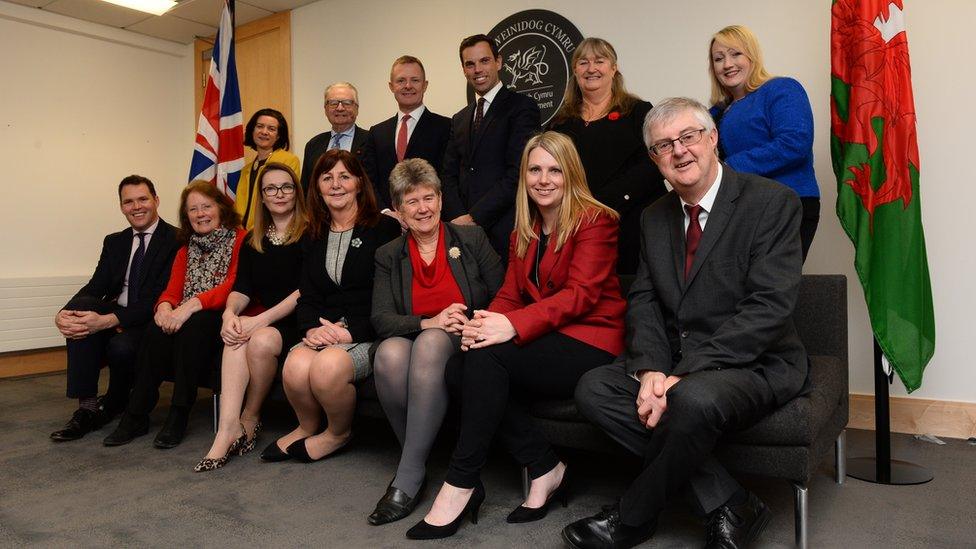
Last December Mark Drakeford appointed Wales' first cabinet with more women than men
Last December, the new First Minister Mark Drakeford appointed Wales' first cabinet with more women than men.
More recently the Welsh Government has been criticised for a lack of urgency and funding in addressing women's rights.
A report by Oxfam Cymru and the Women's Equality Network Wales in April found there was little progress made in ending violence against women, and tackling work and pay equality.
Last month equality charity Chwarae Teg said the Welsh Government needed "a radical change in what we do and how we do things."
The review identified weaknesses in areas such as online abuse and harassment, childcare policies, miscarriage support and employment.
And according to Maria Mesa from the Women's Equality Network Wales, the situation is even worse for women from black, Asian and minority ethnic backgrounds.
"It's a big let-down when we have the oldest black community in Europe," she said.
"We have a lot of talent we are not tapping into. There are black women in Wales who are not getting the same opportunities."
A Welsh Government spokesperson said: "We agree that more can be done and that is why we commissioned Chwarae Teg to undertake a two-part review into our gender equality policies.
"We have set ourselves a challenging agenda and are determined to make Wales the safest place in Europe for women and girls.
"We have world-leading equalities legislation in place and progress has been made, but we must be more ambitious to improve the lives of all women and girls."
Sunday Politics Wales is on BBC One Wales at 10:00 BST and on the BBC iPlayer.
- Published13 April 2019
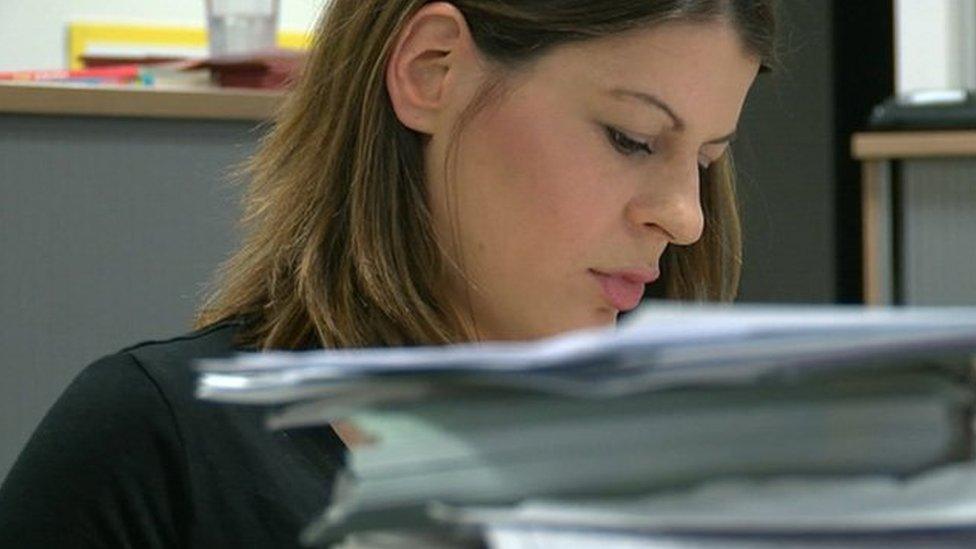
- Published5 April 2018

- Published22 December 2018
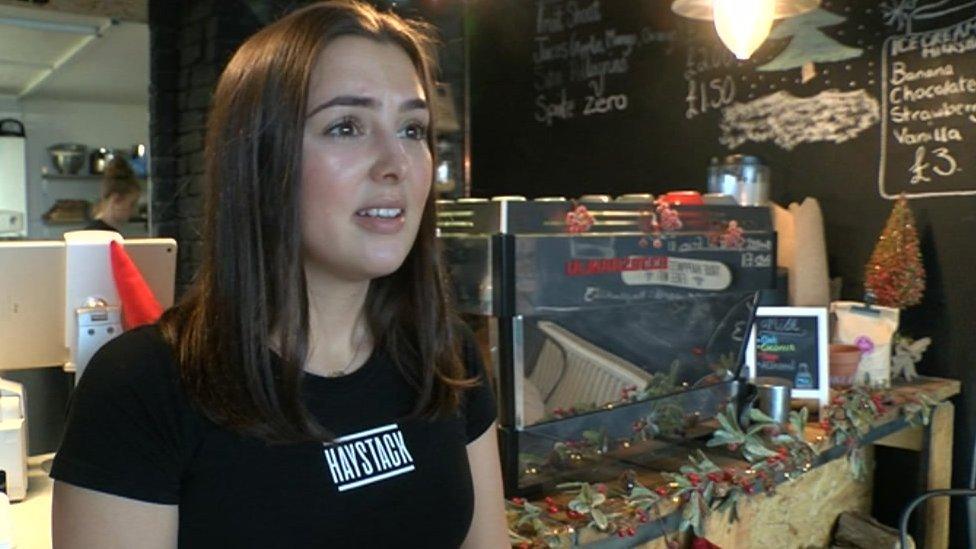
- Published10 July 2018
